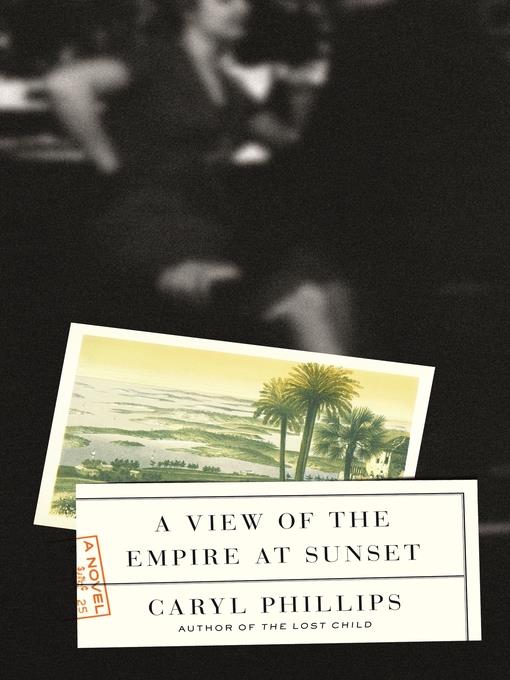
A View of the Empire at Sunset
A Novel
کتاب های مرتبط
- اطلاعات
- نقد و بررسی
- دیدگاه کاربران
نقد و بررسی

Starred review from March 5, 2018
Following The Lost Child, Phillips’s haunting novel centers on the life and work of Jean Rhys, born Ella Gwendolyn Williams and most celebrated for her novel Wide Sargasso Sea. The story opens in 1930s London, as the author and her second husband, Leslie Tilden Smith, plan a voyage to the West Indies. Jean hopes that showing Leslie her birthplace will help him understand her sense of alienation; Leslie wants to soothe his wife’s coldness and alcoholic caprice. The trip still pending, Phillips shifts to his protagonist’s childhood as the daughter of a Welsh doctor and a Creole mother in the Dominican city of Roseau. Sent from her beloved homeland to England for schooling at 16, the wayward and homesick Gwennie has an incomprehensible accent, “mongrel” looks, and the persistent unease of an outsider. A string of marginal careers and unsatisfactory relationships, two children lost in different ways, and an emerging talent for fiction lead to her meeting with Leslie, an agent who appreciates her writing. Closing the novel and bringing its narrative full circle, the couple’s trip to the Caribbean is in equal measure revelatory and futile. The brief vignettes and small, disquieting moments from which Phillips crafts his story push against the epic grandeur its scope suggests. Though Rhys fans might be disappointed by Phillips’s decision to depict little of her literary development, they will appreciate the rich echoes of Wide Sargasso Sea, another novel of untamed “misfit” women, colonial wreckage, the West Indies, and the power dynamics of gender and race. Phillips is at his best in this powerful evocation of Rhys’s vision, which illuminates both her time and the present.

April 1, 2018
Another novel with a Brontë connection from the award-winning British author.Long before she became known for writing the feminist classic Wide Sargasso Sea, the author Jean Rhys was a girl named Ella Gwendolyn Rees Williams. Phillips begins his fictional account of Rhys' life with her childhood on the island of Dominica, in the British West Indies. In his last book, The Lost Child (2015), Phillips used Wuthering Heights as the inspiration for a modern story about race and colonialism. The connections between Emily Brontë's life and work and Phillips' own novel were both rich and subtle. Race and colonialism are key themes, here, too, but their treatment is less thought-provoking, in part because race and colonialism are such obvious factors in Rhys' biography and her masterpiece. For instance, it comes as no surprise that young Gwendolen's (this is the spelling Phillips uses) mother doesn't want her to socialize with the child of "Negro" servants, and Phillips' depiction of the moment when Gwendolen is forever separated from her friend goes unexamined. Indeed, this novel is, for the most part, written in a blandly expository style, and it often veers dangerously close to cliché. Also, Phillips makes the stylistic choice to refer to his protagonist only as "she" (except when other characters refer to her in dialogue), regardless of any interfering antecedent, and there are many instances in which this is confusing, even for the reader who's learned to expect it. After The Lost Child, this novel is a bit of a letdown. This is surprising, too, because Rhys led an undeniably unusual life. After she left home--at her parents' insistence--for England at the age of 16, she studied acting. She spent much of the 1920s in Paris. She had numerous lovers and three husbands. And her oeuvre, though small, has been hugely influential, especially for female writers and academics. Phillips is under no obligation to make his protagonist sensational, of course, but he doesn't even make her interesting. We get that Gwen is high-strung. We watch as she endures disappointments and tragedies. We see all this as if from a distance. There's no depth here.A lackluster novel from a great writer.
COPYRIGHT(2018) Kirkus Reviews, ALL RIGHTS RESERVED.

Starred review from April 15, 2018
Distinguished novelist and essayist Phillips (Color Me English, 2011) explores with rigor and artistry the ever-aftereffects of the toxic double-helix of racism and imperialism embodied in the African diaspora. In The Lost Child (2015), Phillips improvised on Emily Bront�'s Wuthering Heights. In his eleventh novel, he performs a daring fictionalization of the life and psyche of Jean Rhys, an earlier British West Indian immigrant writer who reimagined another cherished English classic, Charlotte Bront�'s Jane Eyre, in Wide Sargasso Sea (1966). Born on the island of Dominica just as the sun was beginning to set on the British Empire, Gwen is sent to England at age 16, where she is made to feel freakish; works as a chorus girl; drinks to excess; and, as both mistress and wife, relies on men to support her. Alluringly waiflike yet intractable, Gwen is preemptively observant, stoic, depressed, hostile and often hysterical, even dangerous. Phillips' hypnotic interpretation of the first half of Gwen's life is riddled with strategic lacunae, so that the sudden mention of her writing cracks the bitter gloom like a lightning bolt. Phillips' bravura, empathic, and unnerving performance makes the real-world achievement of his muse all the more surprising and significant.(Reprinted with permission of Booklist, copyright 2018, American Library Association.)

December 1, 2017
Just as Jean Rhys's Wide Sargasso Seareimagines the life of Bertha, the in-the-attic first wife of Mr. Rochester in Jane Eyre, so Phillips (The Lost Child), winner of PEN Open Book and James Tait Black Memorial honors, reimagines the life of Jean Rhys. Himself born in St. Kitts, Phillips traces Rhys's life from her birth in Dominica to her miserable years in Edwardian England and return in 1936 to her beloved Caribbean home. In the process, he addresses fraught issues of colonization.
Copyright 2017 Library Journal, LLC Used with permission.

























دیدگاه کاربران